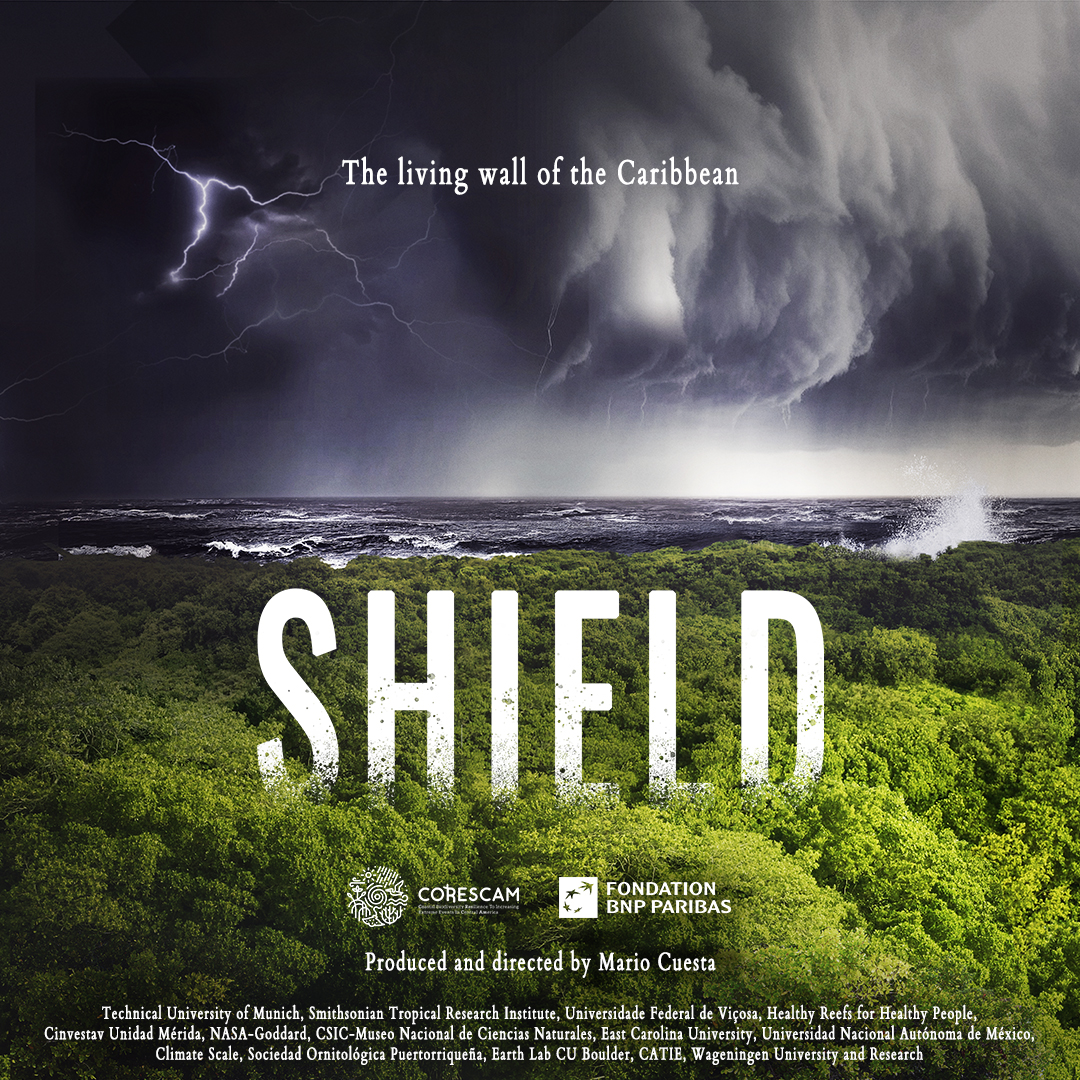Dr. David Lagomasino, depicted in the film still above walking through a study site in the Florida Everglades, is stationed at the Coastal Studies Institute on the ECU Outer Banks Campus, yet his research reaches around the world. Much of his work focuses on mangrove ecosystems found in tropical and subtropical coastal zones. These critical habitats provide a variety of ecosystem services, not unlike the marshes of North Carolina.

Among his many research endeavors, Lagomasino works with a multi-institutional team of researchers, known as CORESCAM, who collaborate with Caribbean communities to preserve essential mangrove forests and coral reefs. Their work is at the heart of a newly released environmental documentary directed by Mario Cuesta. The film, SHIELD: The living wall of the Caribbean, aims to shed light on the benefits reaped from these unique, carbon-sequestering ecosystems and the hazards they face from increasing natural disasters such as hurricanes and drought.
“It has been an incredible experience and opportunity to work with such an amazing group of scientists and filmmakers to create this documentary. We wanted to tell a story about the importance of coastal ecosystems and their connections to communities. But we also wanted to highlight how different types of research and technology help us to understand why the changes are happening and what that means for the future of our coasts,” shares Lagomasino.
Though the film focuses on changes occurring in Florida, Puerto Rico, Mexico, and Panama, many parallels can be drawn to the coastal ecosystems of North Carolina. For example, the fringing marshes found along the Outer Banks also sequester carbon in their soils, stabilize the shoreline, and mitigate flooding impacts during large storm events. Thus, it is likely the film would appeal to those who live in a variety of coastal environments.
The feature-length documentary is not yet available to the public, however, it was recently selected to be shown at the Florida Environmental Film Festival in April 2025, as well as the Fort Myers Film Festival and the Frome International Climate Film Festival in the UK, both in May 2025. Future plans currently include releasing the documentary as a three-part TV series at a date to be determined. A trailer for SHIELD: The living wall of the Caribbean can be found below.



 Based at the Coastal Studies Institute (CSI), the North Carolina Renewable Ocean Energy Program (NCROEP) advances inter-disciplinary marine energy solutions across UNC System partner colleges of engineering at NC State University, UNC Charlotte, and NC A&T University. Click on the links below for more information.
Based at the Coastal Studies Institute (CSI), the North Carolina Renewable Ocean Energy Program (NCROEP) advances inter-disciplinary marine energy solutions across UNC System partner colleges of engineering at NC State University, UNC Charlotte, and NC A&T University. Click on the links below for more information. ECU's Integrated Coastal Programs (ECU ICP) is a leader in coastal and marine research, education, and engagement. ECU ICP includes the Coastal Studies Institute, ECU's Department of Coastal Studies, and ECU Diving and Water Safety.
ECU's Integrated Coastal Programs (ECU ICP) is a leader in coastal and marine research, education, and engagement. ECU ICP includes the Coastal Studies Institute, ECU's Department of Coastal Studies, and ECU Diving and Water Safety. The ECU Outer Banks campus is home to the Coastal Studies Institute.
The ECU Outer Banks campus is home to the Coastal Studies Institute.

